Latest News

Bryan invited for a guest lecture at Rowan University

Bryan’s research on CDA foams featured by Science Quickly podcast

WHOI scientists discover fastest degrading bioplastic in seawater
Now after years of testing, a new version of CDA was found to be the fastest degrading bioplastic material tested in seawater—and it’s a promising replacement for other foam plastic materials, like Styrofoam, which can linger in the environment for many years. In a new paper published in ACS Sustainable Chemistry & Engineering, WHOI scientists Bryan James, Collin Ward, Chris Reddy, Yanchen Sun, and Kali Pate, found that adding small pores—called foaming—to CDA material made it degrade 15 times faster than solid CDA, and even faster than paper.
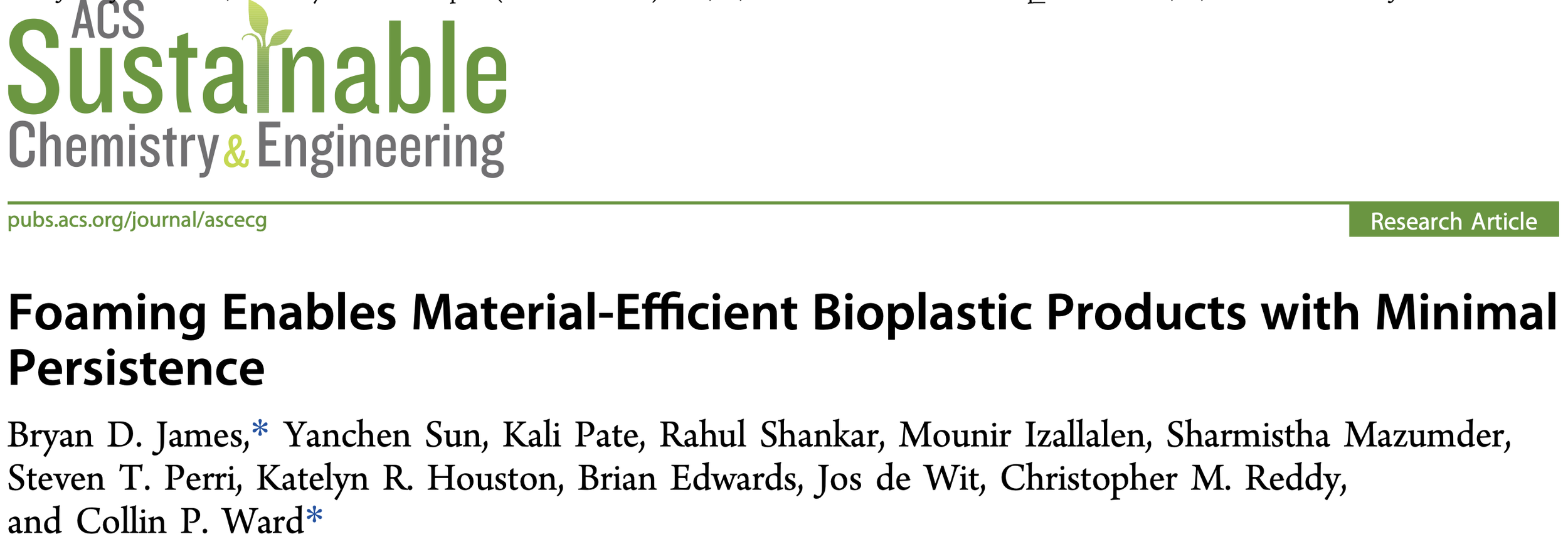
Bryan has paper published in ACS Sustainable Chemistry & Engineering
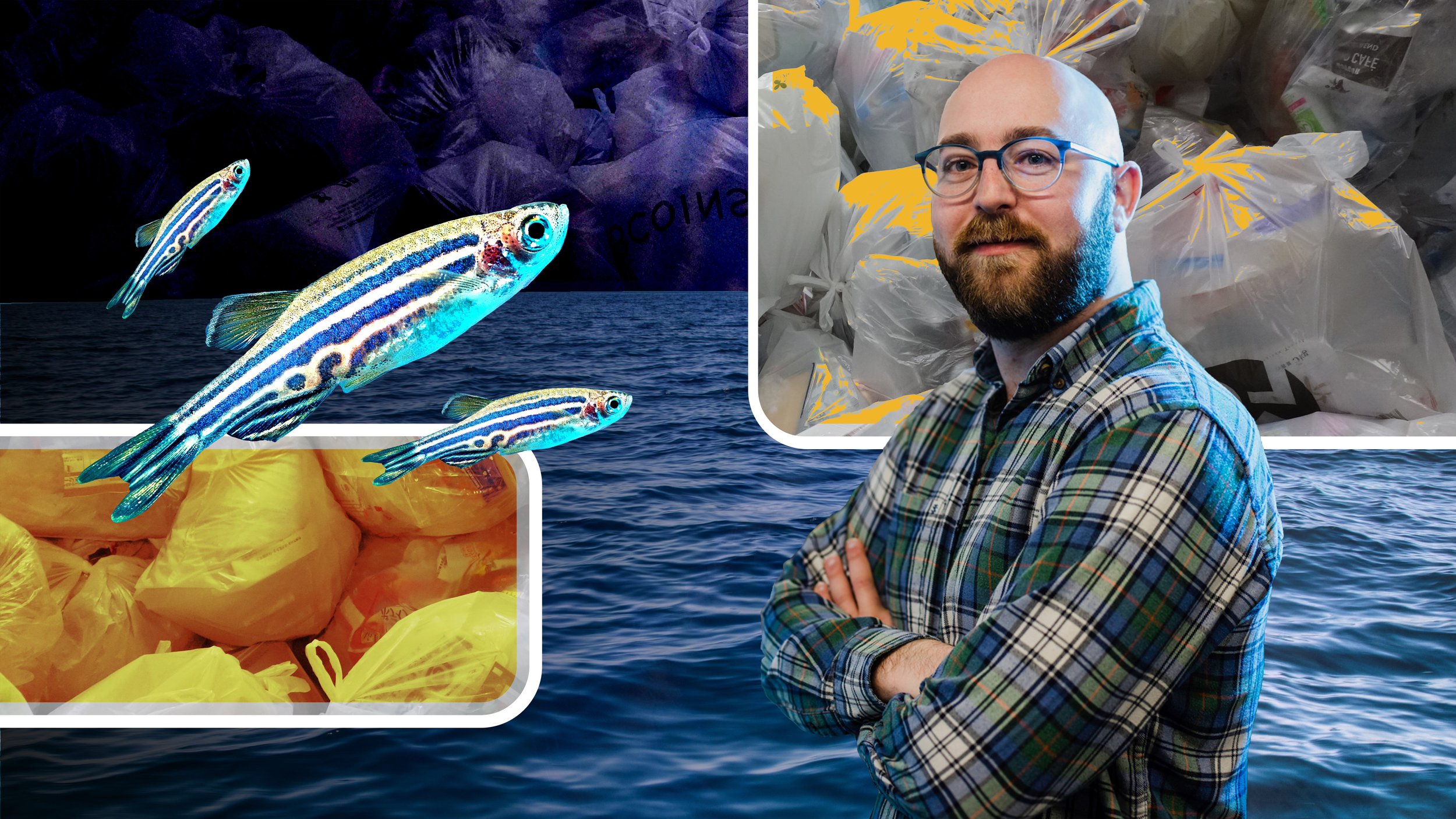
Bryan interviewed for Fleshy Futures
Why should biomedical engineers care about research on ocean plastics?

Bryan has paper published in ACS Biomaterials Science & Engineering
Moldable Plastics (Polycaprolactone) can be Acutely Toxic to Developing Zebrafish and Activate Nuclear Receptors in Mammalian Cells
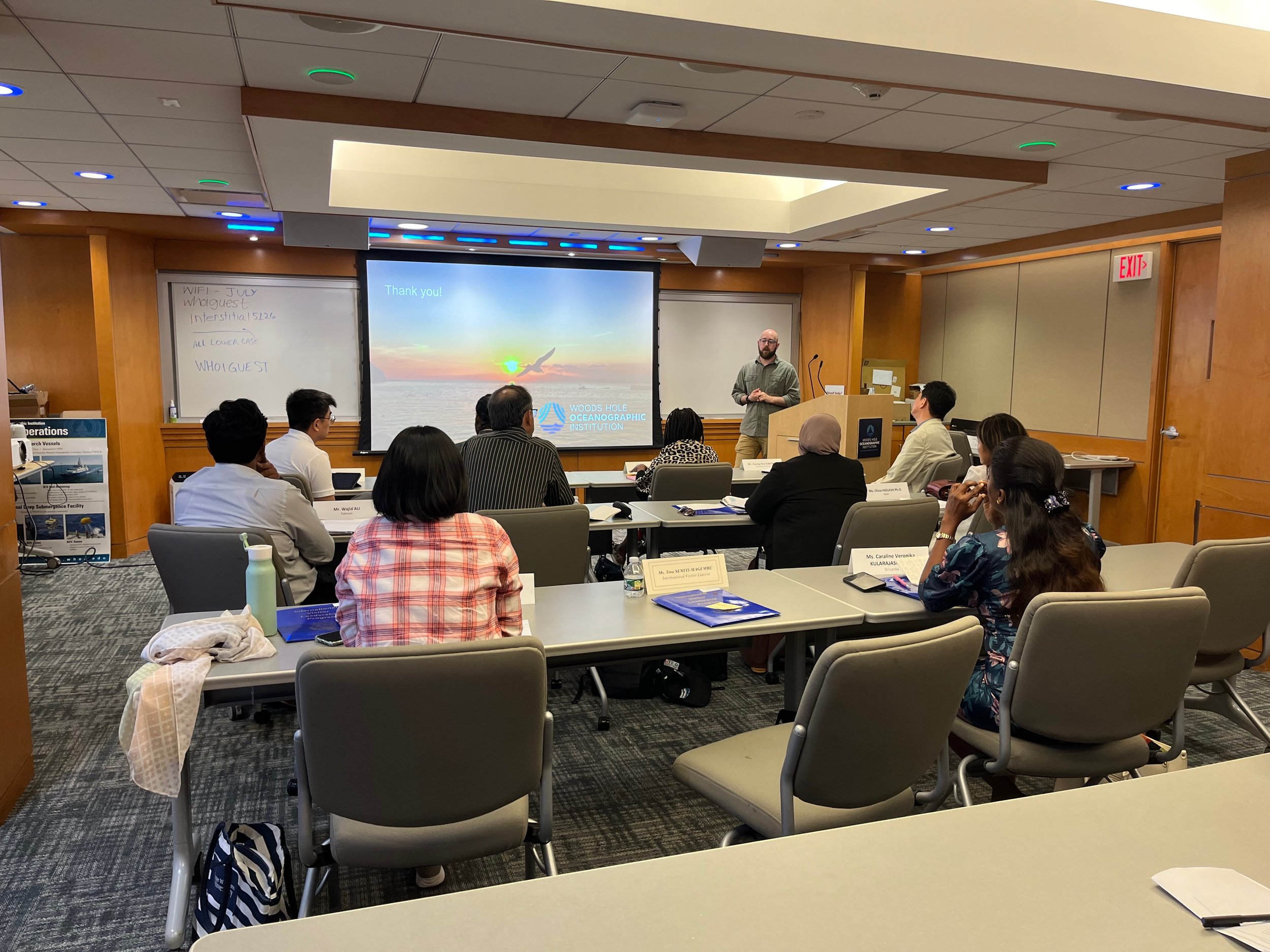
Bryan meets with US State Department International Visitor Leadership Program (IVLP) Indo-Pacific delegation

Bryan’s study featured on WBZ Earth Day Climate Special

Bryan interviewed by the local news
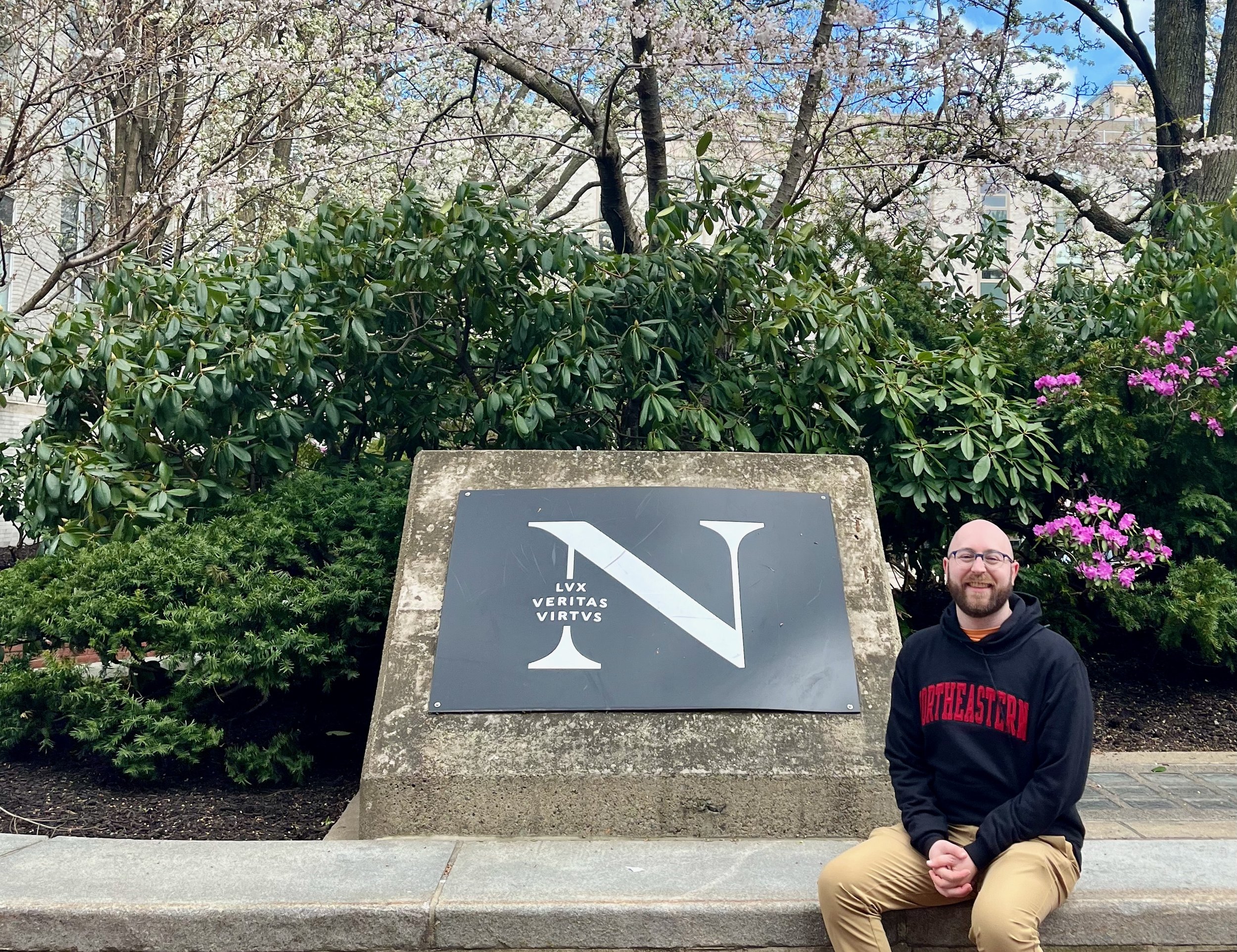
Bryan accepts tenure-track position at NEU ChE

ACS features Bryan’s work in a press release
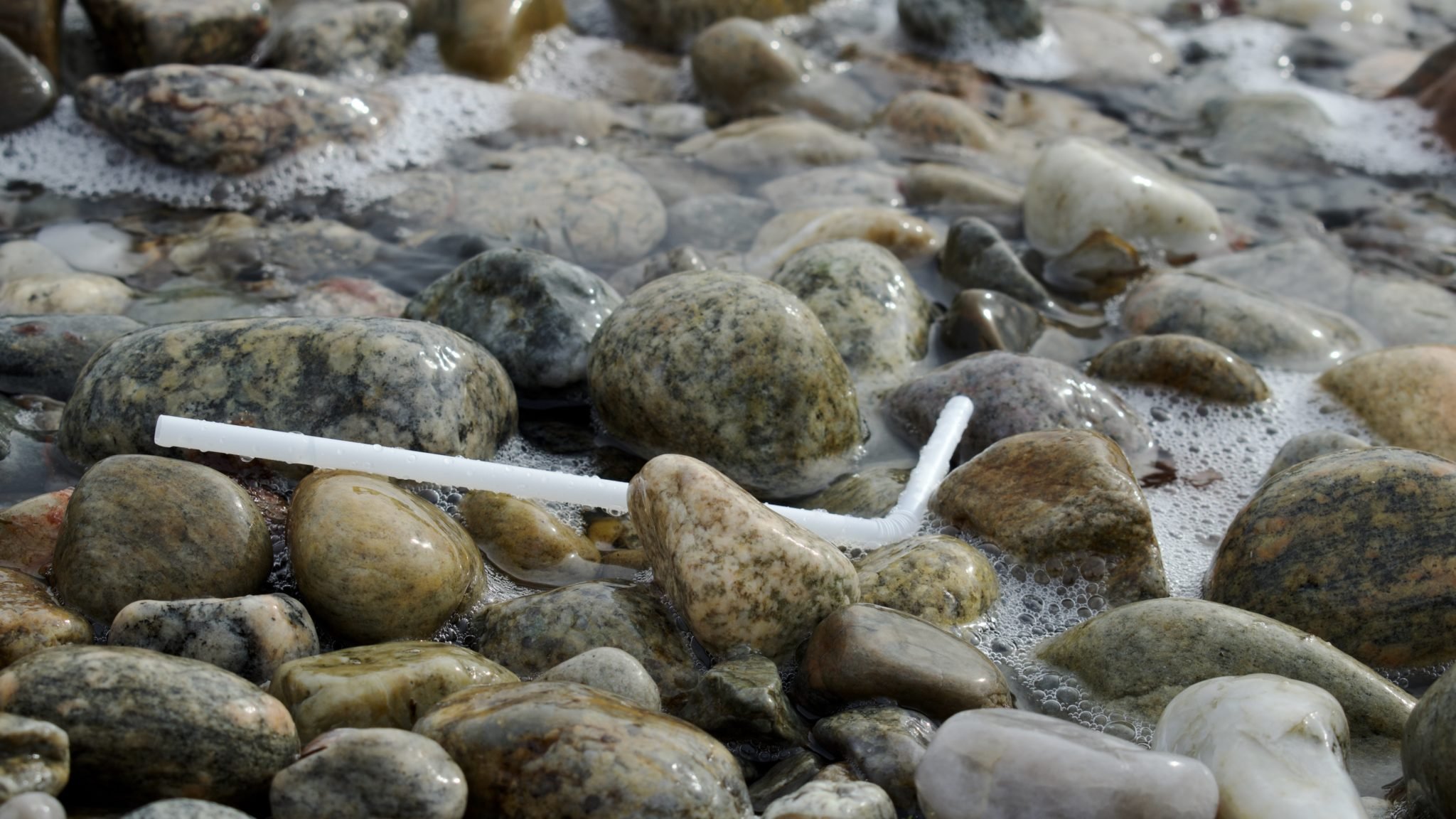
WHOI researchers determine lifetimes of commercial drinking straws in the coastal ocean and develop a prototype bioplastic straw that degrades even faster than paper

Bryan has paper published in ACS Sustainable Chemistry & Engineering

Bryan was awarded a Sustainable Futures Early Career Postdoctoral-Faculty Bridge Grant from the ACS-GCI

WHOI researchers say accounting for plastic persistence can minimize environmental impacts
Now, researchers have developed a sustainability metric for the ecological design of plastic products that have low persistence in the environment. Adhering to this metric could provide substantial environmental and societal benefits, according to a new study led by researchers at the Woods Hole Oceanographic Institution (WHOI), and published in the journal ACS Sustainable Chemistry & Engineering.

Bryan has article published in ACS Sustainable Chemistry & Engineering
Now, researchers have developed a sustainability metric for the ecological design of plastic products that have low persistence in the environment. Adhering to this metric could provide substantial environmental and societal benefits, according to a new study led by researchers at the Woods Hole Oceanographic Institution (WHOI), and published in the journal ACS Sustainable Chemistry & Engineering.
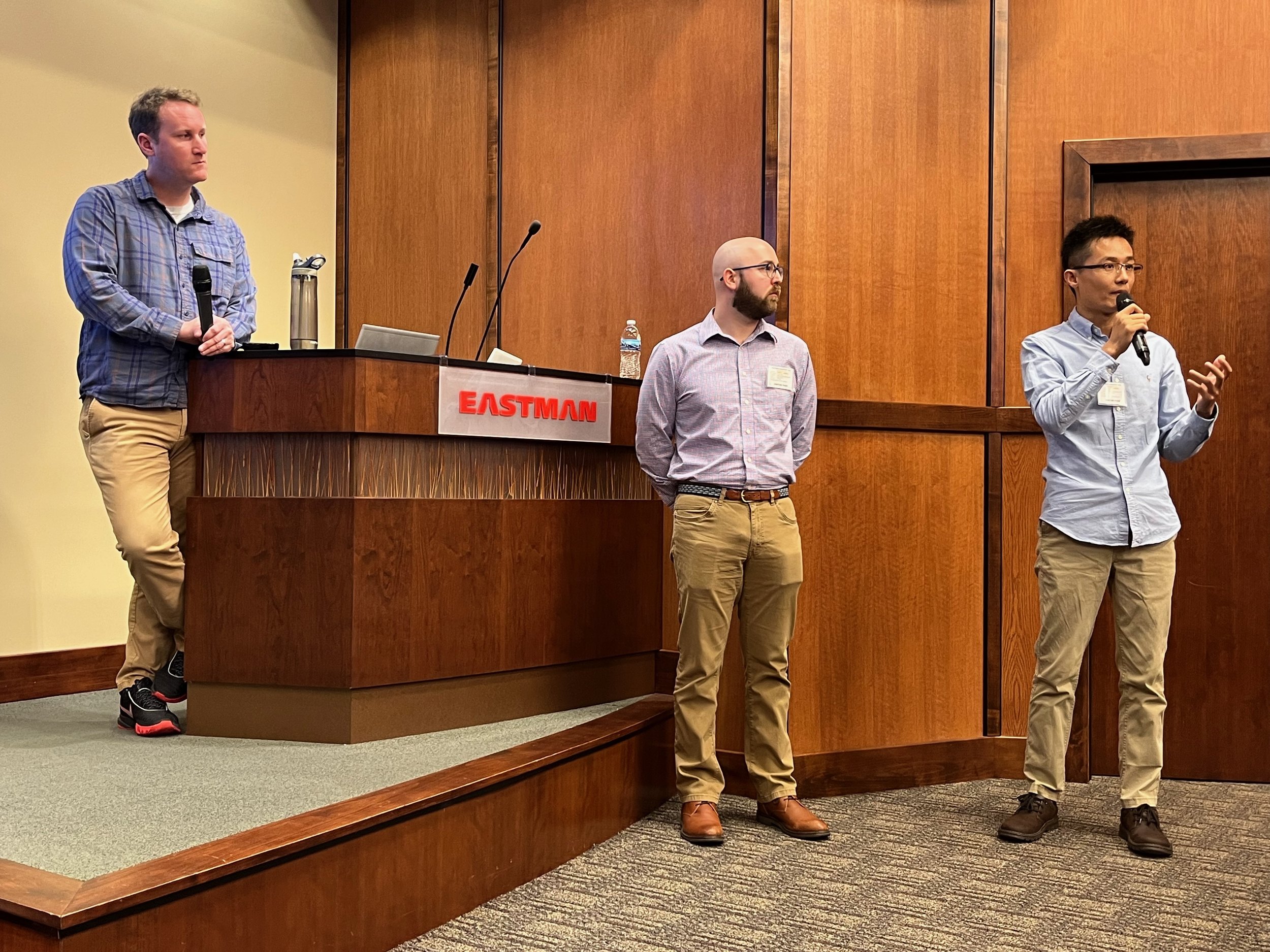
WHOI team presents findings at Eastman Chemical Company
Bryan and team present at Eastman Chemical Company
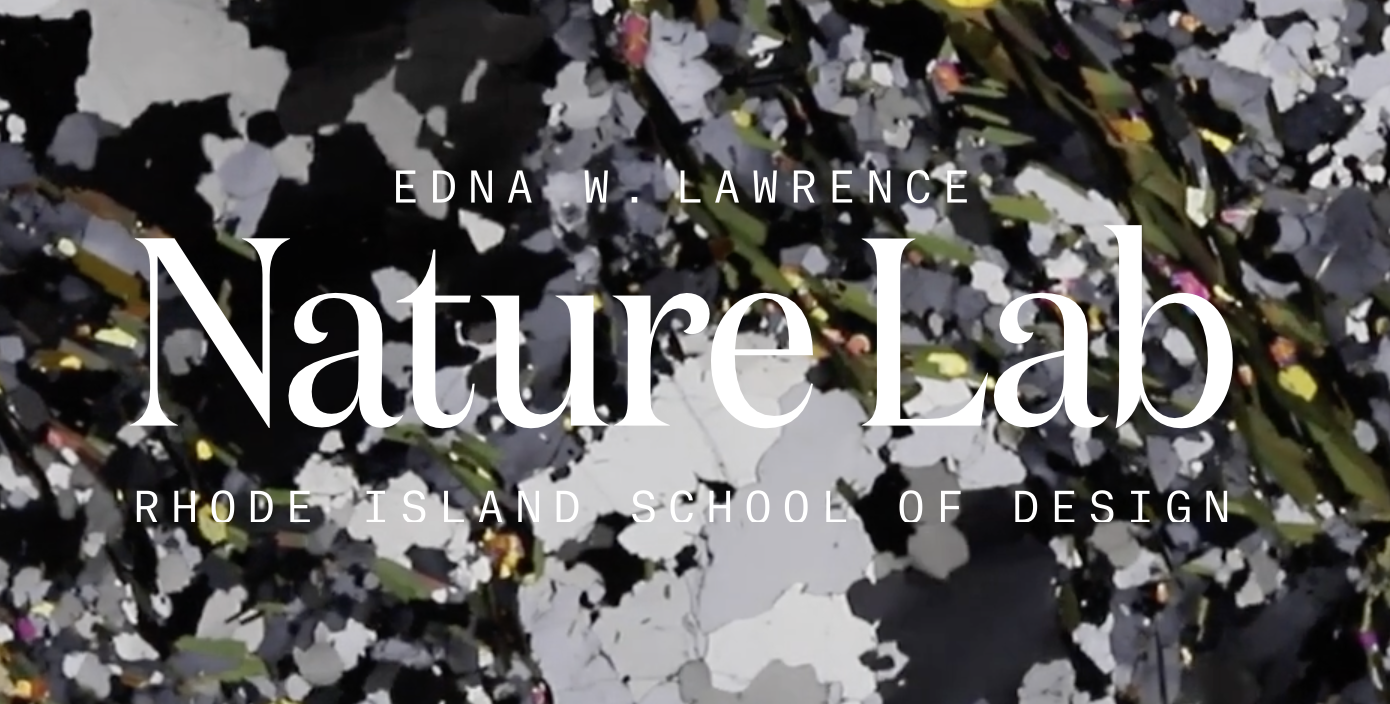
Bryan speaks to design students at RISD
Bryan speaks at the Rhode Island School of Design’s Nature Lab about materials science and eco-design.

Bryan named a Rising Star in Engineering in Health!
